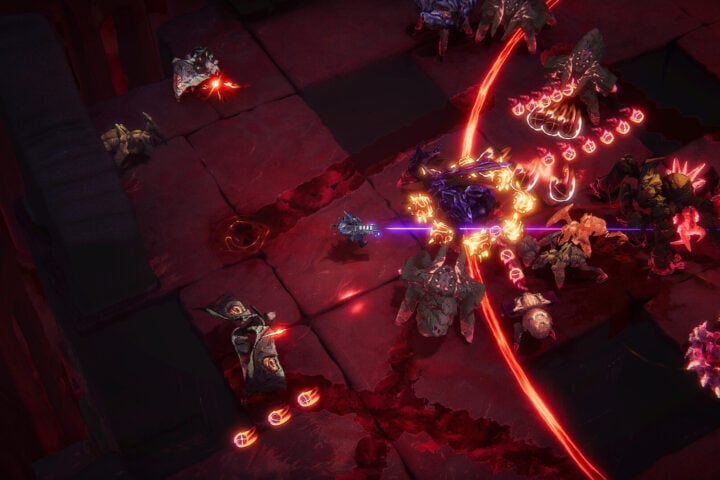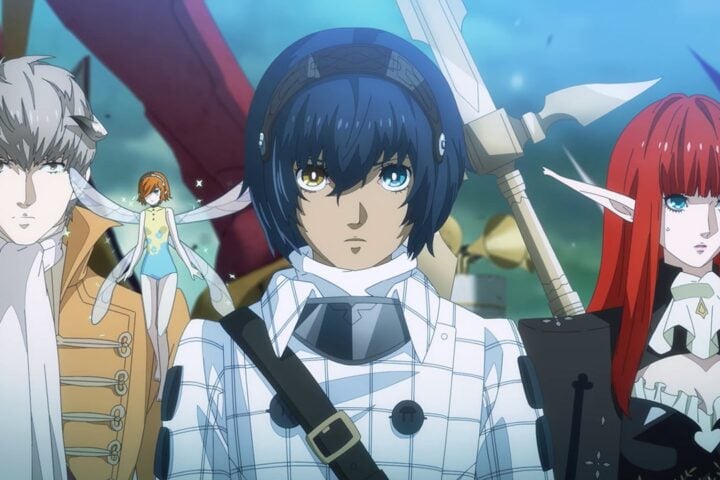Finally, the long-standing complaint that the Legend of Zelda games have never really been about Zelda’s legend can be put to bed. And that’s pretty literal in Echoes of Wisdom, considering how useful beds are across the game. Still, it’s a milestone in the nearly 40 years of this series’s history that Zelda is the hero of her own story in a mainline Legend of Zelda game, but like nearly every major female Nintendo character that isn’t Samus Aran, there are asterisks to that, even if they’re born of sincere ambition on the part of the developers.
In this game, after a short prologue where Link saves Zelda from Ganon, a rift opens in time and space, swallowing Link up in the process. After Zelda frees herself and returns to Hyrule Castle, she finds out that the rifts are spreading throughout the land. What’s more, people are falling into them, and their evil clones are being spat back out. And after a fairy, Tri, gives her the lowdown on the Still World that the rifts lead to, Zelda sets out on her own to seal the rifts.
Zelda does so with the help of a magic wand that creates “echoes” of just about any object that she comes across in the world, from simple boxes and pots all the way up to armored knights. What she doesn’t have, though, is a sword. While she does get the ability to get possessed with the spirit of Link and slash at enemies, it’s a temporary skill, with a meter that drains quick. Instead, Zelda must accomplish most things by summoning what she needs.
Despite operating on the same visual style as 2019’s Link’s Awakening remake, the game’s emphasis on player creativity is very much in line with Breath of the Wild and Tears of the Kingdom. Arguably, this is a much more elegant realization of Nintendo’s ethos for these games of giving players the tools to let them do whatever they can imagine, since there’s so much less guesswork and fiddling with physics to be done to create bespoke solutions to problems. There’s even the extra thrill of being able to conjure your own enemies, and there’s a special, Pokémon-esque thrill to figuring out which enemies can triumph over which at any given moment.
The biggest problem with Echoes of Wisdom’s creation mechanics is one of organization: The menu where you select which objects to conjure gets to be as long as an iPhone contact list after a while, and even with a few sorting options, getting exactly what you need gets arduous in the game’s later hours. That pairs terribly with just how much Echoes of Wisdom seems to be putting a performance strain on the rapidly sundowning Switch.
Still, Nintendo once again has given gamers a creative goldmine to play with. The closest analogue to the sorcery that Zelda gets to pull off throughout this game is the Scribblenauts series, and even then, there’s something so much more special about that idea of conjuring things out of thin air in a Legend of Zelda game, let alone all the charming secret abilities of some items and how much they encourage players to try and break the game.
Which is to say, Echoes of Wisdom doesn’t rock the boat too much. In this and other respects, it’s a fairly typical Legend of Zelda game at heart, involving fairies, the Triforce, visiting various tribes, and so on. But considering that the fairly typical Legend of Zelda game that it’s meant to follow up is Link’s Awakening, there’s still plenty of untapped charm to be found therein.
There’s a unique thrill to playing as Zelda: Sorcerer Supreme, but some hours into Echoes of Wisdom, especially the more that Zelda conjures bigger and badder creatures to smite her enemies, it still leaves the player wondering when, exactly, we get to play as Zelda: The Hero of Time. Nintendo remains a market leader in giving players what they didn’t know they needed rather than what they adamantly wanted, and Echoes of Wisdom is an excellent showcase for why that is, but it’s hard to shake just how many of Zelda’s problems could be solved just by letting her have a sword and an ocarina in the first place.
This game was reviewed with a key provided by Golin.
Since 2001, we've brought you uncompromising, candid takes on the world of film, music, television, video games, theater, and more. Independently owned and operated publications like Slant have been hit hard in recent years, but we’re committed to keeping our content free and accessible—meaning no paywalls or fees.
If you like what we do, please consider subscribing to our Patreon or making a donation.




